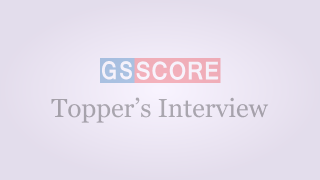Want to know more about this Program or have any queries regarding UPSC CSE preparation?
Mains Test SeriesToday's toppers were yesterday's aspirants. They don't do different things. They just do the right things differently. Toppers’ Corner is your place to discover the SUCCESS MANTRAS of the toppers. Explore their stories, strategies, analyze their copies, see how they achieved top scores, their profile, and more!
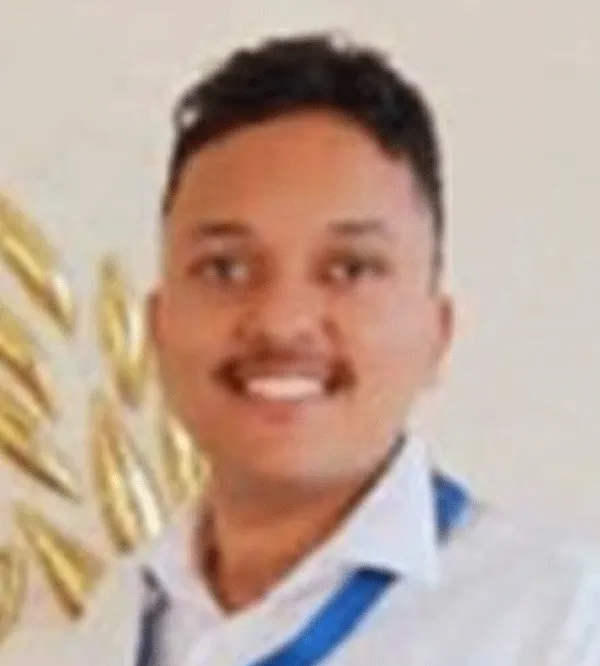
P K SIDHARTH
AIR-4 | 2023

NAUSHEEN
AIR-9 | 2023
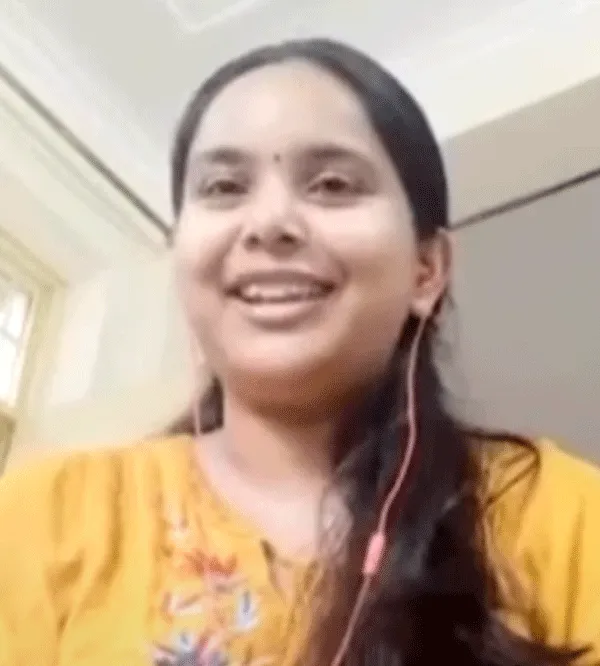
MEDHA ANAND
AIR-13 | 2023

AYAN JAIN
AIR-16 | 2023

ANSHUL BHATT
AIR-22 | 2023

SAURABH SHARMA
AIR-23 | 2023

ISHITA KISHORE
AIR-1 | 2022
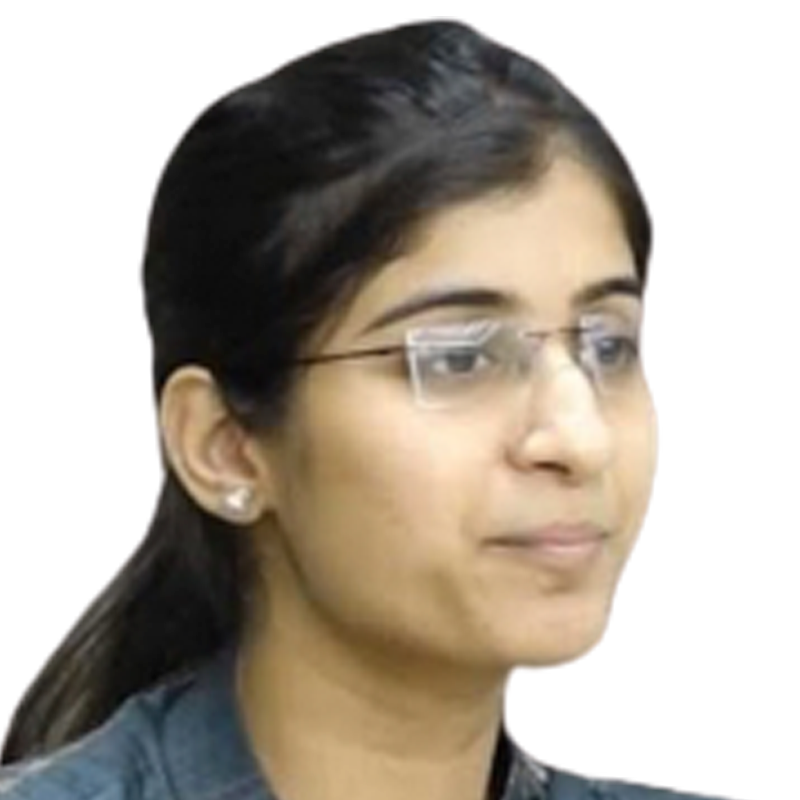
GARIMA LOHIA
AIR-2 | 2022

UMA HARATHI N
AIR-3 | 2022
IAS Topper’s Interview 2014 : Shruti Pandey, AIR 114
IAS Score: Which is the most difficult part of this exam and why? What was your strategy for tackling this difficult part?
Shruti Pandey: Conquering Main Examination was the most difficult part for me. I could clear preliminary exam with relative ease and with good margin but I failed to clear main examination in my first three attempts.
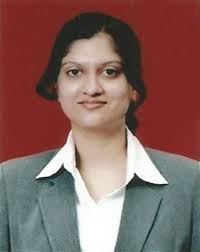
In my fourth attempt, I tried identifying my strengths and weaknesses. I knew that my content portion was strong but my presentation was very weak. My handwriting was very bad and writing speed was slow.
I joined GS SCORE test series because it offered 20 tests including Essay. During the course of the test series, I worked hard on my presentation of answers. I tried out various techniques and saw how they fared. Of course model answers and class discussion helped to fine-tune my content. Over a period of time, my hand writing and writing speed improved. And writing large number of tests helped me prepare the whole spectrum of probable topics.
IAS Score: How did you manage your time for both Prelims and Mains examinations?
Shruti Pandey: Since I had taken multiple attempts in this examination, I did dedicated prelims preparation only in my first attempt. I realized that preparation for prelims and mains exam should not be separated. The nature of questions, of course, varies but matter or topics essentially remain same.
I started doing objective type of questions (as many as I could) a month before prelims for both paper 1 and paper 2 to get into the groove. Immediately after prelims, I took a week’s break and started preparation for mains.
Similarly for mains exam, I wrote 8 to 10 answers daily on whichever topic I studied that day (GS and optional both) to get the habit of quickly framing, structuring content on any topic and be able to write down under 7-8 minutes.
IAS Score: What was your strategy for covering the lengthy syllabus of General Studies for both Prelims and Mains?
Shruti Pandey: I had one standard reference book for each topic and I read them multiple number of times. Questions from even static topics also have some contemporary basis. So it is very important to read newspaper and prioritizing important areas and thus streamlining the preparation.
IAS Score: Did you integrate your Prelims or Mains preparation or was it separate?
Shruti Pandey: Integrated. Books and other material to be read are same, only format of questions differ. So I practiced accordingly.
IAS Score: What would be the best strategy to tackle negative marking in Prelims?
Shruti Pandey: Do not make random guesses. You’ll have to take some risk but it should be done not before eliminating less probable options.
IAS Score: GS Mains was altogether new, as current pattern is only two years old. How did you prepare for that?
Shruti Pandey: I tried not to leave out any topic untouched. I made notes of topics which were contemporary and dynamic in nature (like IR, environment) from internet and revised them. For GS paper 4, I joined GS Score classes. .
IAS Score: Have you completed the GS mains papers?
Shruti Pandey: Yes.
IAS Score: Can you share some idea/strategy about attempting GS paper as it is not easy to write answer of all questions in given time-frame?
Shruti Pandey: It is indeed difficult to answer all the questions. There can be various ways to approach the paper.
One is to devote equal time to each question (7 mins). And try not to exceed the time limit. This can be done through repeated practice. Longer answers can be written in points. Schematics and flow charts can also be used.
The other can be attempting the easy and best known questions first because there is a better chance of scoring. Not being able to attempt them could be detrimental. Attempt ambiguous questions or questions on unknown topics in the end.
Most importantly, maintain a reasonable time limit and not devote out of proportion time on some questions at the cost of other questions.
IAS Score: What was your style of writing in the exam? How was it distinct from the general writing style? How did you develop this writing style?
Shruti Pandey: I tried to stick to introduction-body-conclusion format while writing answers. Introduction and conclusion combined usually did not exceed 50 words. The main body of the answer covered the central theme of the question. It may have points, small paragraphs, flowcharts etc. depending on the demand of the question.
I experimented with these things during the course of test series.
IAS Score: How did you prepared for essay paper.
Shruti Pandey: GS Score Test series included essay tests as well. I tried to follow the improvements that were suggested in evaluation. Although I never scored more than 100 in those essay tests. My score of 137 in mains exam is the highest I have ever got in essay.
IAS Score: What were the sources of information for general reading? How did you come to know about the Standard sources of reading materials?
Shruti Pandey: From various websites, blogs etc. For general reading, I referred to the newspapers, Yojana, Kurukshetra. I regularly wrote answers to the Secure IAS questions given on insightsonindia.com.
IAS Score: What should be the basis of selecting optional?
Shruti Pandey: It should be absolutely based on personal interest and one’s capacity to handle a subject.
IAS Score: Did you follow the myth that only so called popular optional should be opted?
Shruti Pandey: Some optional are more popular than others but I strongly believe that if the aspirant does not enjoy studying the optional, he won’t have deep understanding on the topic.
Questions asked in the exam today are not direct. They seem difficult but with in-depth knowledge about the subject, they can be answered.
Every year, top 10 selected candidates are from every category of optional (science, humanities, literature, other professional subjects etc) which clearly shows that hardworking individuals get selected and not popular optionals.
IAS Score: How did you plan your optional strategy?
Shruti Pandey: My optional was geography. I referred to standard textbooks and prepared contemporary issues from internet. I also practiced making lots of diagrams and maps which help in getting better marks in geography.
IAS Score: How helpful are the notes? What is your advice on notes-making?
Shruti Pandey: Notes help in compressing the large syllabus into manageable form. They also help in quick revision if they are in the form of points or mind-maps.
I made notes mostly on topics for which there is no standard textbooks and have to be compiled from newspaper and internet like IR, environment, science and tech etc.
IAS Score: Civil Services Exam process is quite strenuous. It requires long hours of constant study. How did you maintain your tempo and what did you do to break the monotony of preparation?
Shruti Pandey: I maintained tempo by setting up short-term targets (for a week or so) and achieving them. Test series also helped me structuring my preparation.
I watched RajyaSabha TV debates, listen to AIR news analysis or any other informative video on the Youtube in between to break the monotony.
IAS Score: How did you prepare for interview?
Shruti Pandey: I focused on the information I had mentioned on my DAF – about my education background, my home town, home state. Also I brushed up current affairs esp. on international relations.
I also gave mock interviews at some places to get the feel of the interview. I worked on the feedback and modified body-language, articulation etc.
The questions asked to me in the interview were primarily on my DAF. I got David sir’s board and members were very cordial. There were no stress questions and I was able to handle about 70% questions well.
IAS Score: What is your advice to the candidates who have failed in this exam?
Shruti Pandey: It is certainly not the end of the world. I believe anyone with right amount of hard work and correct strategy can clear this exam. But it is important to know one’s strengths and weakness. Plug-in the gaps and further your strengths. Make a genuine self assessment and proceed with the correct strategy.
IAS Score: Can you disclose your marks in detail.
Marks Obtained
| Subjects | Marks |
| Essay (Paper- I) | 137 |
| General studies- I (paper- II) | 100 |
| General studies- II (paper- III) | 084 |
| General studies- III (paper- IV) | 077 |
| General studies- IV (paper- V) | 101 |
| Optional- I (Geography)(paper- VI) | 125 |
| Optional- II (Geography)(paper- VII) | 136 |
| Written Total | 760 |
| Personality test | 190 |
| Final total | 950 |
